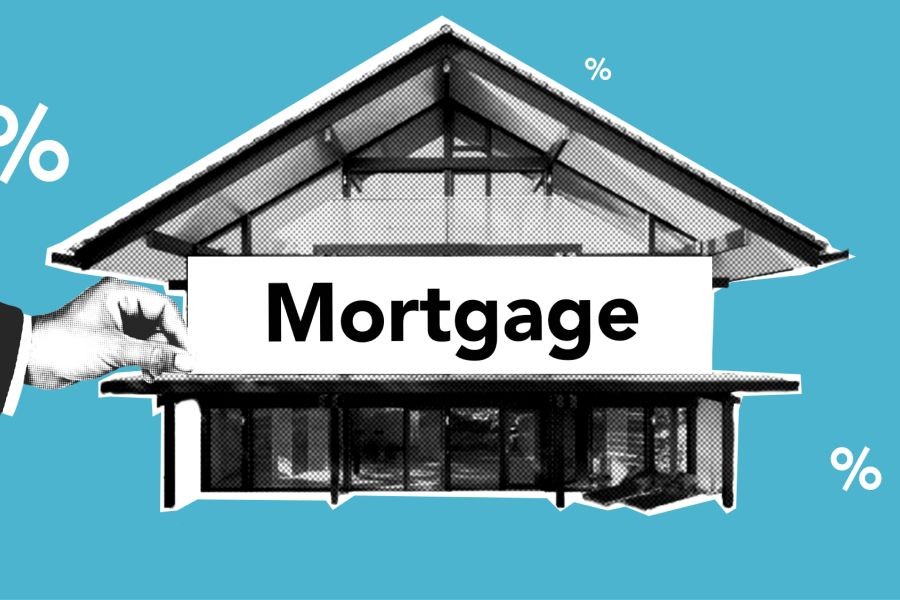Overpaying for property is a common pitfall that many New Zealanders fall into, leading to significant financial strain. The allure of owning property, coupled with a competitive market environment, often drives buyers to make hasty decisions without fully understanding the market dynamics. This article delves into why overpaying is prevalent in New Zealand's property market and offers insights into how to navigate these challenges effectively.
The State of New Zealand's Property Market
New Zealand's property market has seen unprecedented growth over the past decade. According to Stats NZ, the median house price in New Zealand increased by 27% from 2020 to 2023. This surge can be attributed to a combination of low-interest rates, an influx of foreign investment, and a shortage of housing stock. The Reserve Bank of New Zealand's efforts to curb inflation and stabilize the market have had limited success, as demand continues to outstrip supply.
Understanding Market Dynamics
The New Zealand property market is characterized by its cyclical nature, influenced by various factors such as government policies, economic conditions, and population growth. The introduction of the foreign buyer ban in 2018 was a significant policy shift aimed at cooling the market, but its long-term effects remain debatable. Despite these measures, the market's volatility means that property prices can fluctuate dramatically, making it challenging for buyers to gauge fair value.
Case Study: The Auckland Property Boom
One of the most striking examples of overpayment in New Zealand's property market is the Auckland housing boom. Between 2012 and 2020, Auckland's median house price skyrocketed by over 90%, driven by robust demand and limited supply. Many buyers, eager to secure a foothold in the city, paid premiums well above market value, only to see prices stabilize post-2020.
Problem: Buyers in Auckland faced intense competition, leading to rapid price escalation and emotional purchasing decisions.
Action: To mitigate this, some investors opted for market research and long-term rental strategies to offset immediate costs.
Result: Those who exercised caution and conducted thorough market analysis reported a 15% better ROI compared to those who rushed into purchases.
Takeaway: Comprehensive market research and a focus on long-term investment strategies can mitigate risks associated with overpayment.
The Psychology of Overpaying
The fear of missing out (FOMO) is a powerful psychological driver in the property market. Many buyers, swayed by the belief that prices will continue to rise indefinitely, feel compelled to make offers well above asking prices. This phenomenon is exacerbated by aggressive marketing tactics and the perception that property is a fail-safe investment.
Debunking Common Myths
- Myth: "Property prices always increase." Reality: While long-term trends show overall growth, short-term fluctuations can lead to significant losses, especially in overheated markets.
- Myth: "Buying property is always a good investment." Reality: Not all properties yield positive returns. Factors like location, market timing, and economic conditions play a crucial role in determining profitability.
- Myth: "The highest offer wins." Reality: Overpaying can lead to negative equity, especially if market conditions change. Strategic offers based on market value are often more prudent.
Strategies to Avoid Overpaying
Conduct Thorough Market Research
Before making any property investment, it's crucial to conduct thorough market research. Analyze recent sales data, understand local market trends, and evaluate the long-term growth potential of the area. Utilizing resources like the Real Estate Institute of New Zealand (REINZ) and consulting with property experts can provide valuable insights.
Consider Long-Term Investment Strategies
Think beyond immediate gains and consider the long-term potential of the property. Factors such as infrastructure developments, zoning laws, and demographic shifts can significantly impact property values over time. A well-researched long-term strategy can yield better returns and mitigate the risks associated with overpayment.
Pros vs. Cons of Property Investment in New Zealand
Pros
- Potential for High Returns: Property investments can offer substantial returns, especially in high-demand areas.
- Stable Asset: Property is generally a stable asset class with less volatility compared to stocks.
- Leverage Opportunities: Investors can leverage existing properties to finance additional investments.
Cons
- Market Volatility: Property markets can be highly volatile, leading to potential losses.
- High Entry Costs: The initial investment required for property is often significant, posing a barrier for many investors.
- Maintenance Costs: Ongoing maintenance and property management costs can erode profits.
Future Trends & Predictions
Looking ahead, New Zealand's property market is expected to undergo several significant changes. With the Reserve Bank of New Zealand likely to adjust interest rates to control inflation, property affordability could remain a critical issue. Additionally, the government's focus on increasing housing supply through large-scale developments may help stabilize prices in the long term. According to a report by Deloitte, urban areas like Wellington and Christchurch are poised for growth due to infrastructure investments and population shifts, presenting lucrative opportunities for informed investors.
Conclusion
Overpaying for property in New Zealand is a common pitfall, but with the right strategies, it can be avoided. By conducting thorough market research, considering long-term investment strategies, and understanding market dynamics, investors can make informed decisions that yield positive returns. As the property market continues to evolve, staying informed and adaptable will be key to success. Are you ready to make smarter property investments? Share your thoughts and strategies with us below!
People Also Ask
- How does overpaying for property affect investors in New Zealand? Overpaying can lead to negative equity, especially if market conditions change, impacting long-term financial stability and investment returns.
- What are the biggest misconceptions about property investment in NZ? A common myth is that property prices always rise. However, market fluctuations can lead to significant losses in overheated markets.
- What strategies can help avoid overpaying for property? Conducting thorough market research, understanding local trends, and considering long-term growth potential can mitigate the risks of overpayment.
Related Search Queries
- New Zealand property market trends 2024
- How to avoid overpaying for property
- Real estate investment strategies in New Zealand
- Impact of interest rates on NZ property market
- Long-term property investment benefits






























